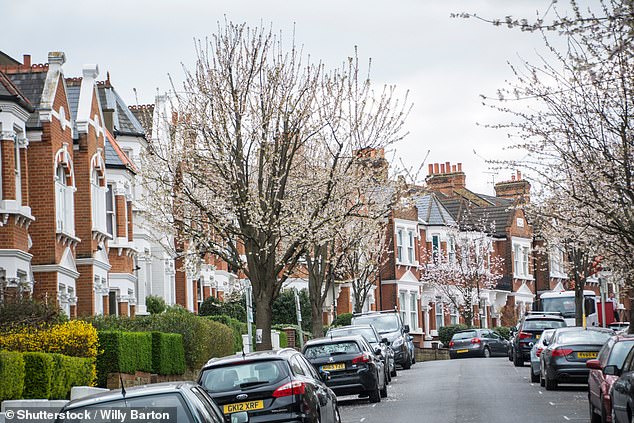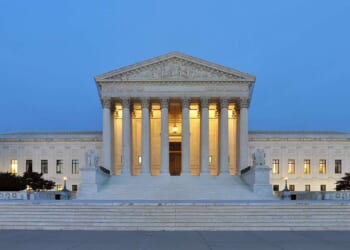One of the chief attractions of my South London suburb is the free and readily available on-street parking most of us enjoy – an increasingly rare bonus for a neighbourhood within half an hour of the centre of town.
This has meant that, in the 37 years since my family moved to the area, we and our neighbours have almost always been able to park without charge, either slap bang outside our front doors or no more than a few yards away.
But not for much longer, if our Labour council gets its way – which, alas, it almost certainly will.
Like so many other local authorities nationwide, Lambeth finds itself desperately strapped for cash and scrabbling around for any source of extra income to service its gob-smacking debts.
This is in spite of the annual £2,822.38 council tax – up an inflation-busting 4.7 per cent on last year – which it charges those like me who own modest family homes in band F.
(I note, by the way, that I have to pay Lambeth almost £800 a year more in council tax on my unfashionable three-and-a-half-bedroom semi than Westminster Council charges for the swankiest band H houses in the city centre, such as the 240-bedroom Buckingham Palace!)
But where was I? Ah, yes. Who better to screw for extra cash – think the Lefty town-hall tyrants of Lambeth – than that bourgeois enemy of the people and the environment, the poor bloody motorist?
So it is that my local councillors have decided to impose a Controlled Parking Zone (CPZ) on everyone who lives in our adjoining streets.

The idea is to promote ‘healthy streets’, ‘manage vehicle access to the kerbside’ and ‘incentivise more active and sustainable travel through allocating more of our kerbside space to sustainable users’
Under this proposal, those of my neighbours who own low-emission petrol-driven cars like mine will henceforth have to pay £345.35 a year to park outside their homes.
Even those with zero-emissions cars will be charged £135.96, while owners of vehicles with the highest CO2 emissions will be stung for no less than £682.63 a year for a benefit they have hitherto enjoyed free of charge.
If we can agree on nothing else, I think that most of us will admit that an increase from £0.00 to £682.63 is pretty steep, even by the inflationary standards we must expect when Rachel Reeves’s tax raid on jobs and businesses starts to bite.
Of course, Lambeth Council is loath to admit that its plans are driven by anything so ignoble as mere greed for more cash from car owners. No, perish the thought!
In an infuriating newsletter announcing a ‘consultation’, it says that the idea is to promote ‘healthy streets’, ‘manage vehicle access to the kerbside’ and ‘incentivise more active and sustainable travel through allocating more of our kerbside space to sustainable users’. (By sustainable users, it means people who get around on foot, by bicycle or by public transport.)
Illustrated by the sort of patronising cartoons you find in books for four-year-olds, the leaflet goes on to wag its finger at my fellow car owners, warning: ‘Free unrestricted vehicle parking comes at a cost to everyone in terms of public health and the impact on our climate.’
As you can imagine, this has not gone down well with my fellow residents. To judge by the comments on my street’s WhatsApp group, we are just about unanimous in our fury over the prospect of losing one of the most appealing benefits our neighbourhood has to offer.
We feel this particularly strongly, since we depend on our cars far more than most who live such a short distance from central London. This is because our street stands at the top of a steep hill, half a mile long, that leads down to the nearest shops, the railway station and the buses.
Even in the days when we first moved to the area, when I was 37 years younger and fitter than I am now, I found the walk home up that hill an exhausting struggle. At 71, I can no longer face it – let alone when there’s heavy shopping to carry or a grandchild to push in a buggy.
As for the idea that I should take up cycling again, after a lifetime of heavy smoking and drinking, all I can say is that I’d be dead within a week if I had to ride up that hill, half a century since I last sat in a saddle.
I’d just like to see those Lambeth councillors try it when they reach my age.
If it’s out of the question for me, just think how much more so bicycling or hill-climbing would be for neighbours older and less fit even than I am, or for young mothers with children and shopping to lug around.
Without cars, or places to park them nearby, they’d be under something akin to house arrest.
But we all know, from bitter experience, that local authorities seldom pay a blind bit of attention to residents who oppose their plans.
We saw it when the Mayor of London, Sadiq Khan, blithely ignored the outcry against his accursed Ultra Low Emission Zone, pressing ahead with it all the same.
We see it all over the country, too, when councils enforce Low Traffic Neighbourhoods, in the teeth of local opposition, or drive shops out of business by imposing exorbitant parking charges in the High Street.
As for Lambeth, its councillors and officials seem to think it’s enough to launch a public consultation, without feeling any obligation to heed the views it elicits.
As it happens, I’m not even allowed to take part in the official consultation, since our road is surrounded by the proposed CPZ, but for unfathomable reasons it’s not actually in it.
All right, this means I won’t be charged for that permit just yet. But, as night follows day, it also means that demand for spaces in my road will skyrocket as other motorists seek refuge from the zone. So I can kiss goodbye to that treasured spot outside my front door – or, indeed, to any other parking place within miles.
In the same way, the shops at the bottom of our hill are bound to suffer badly through loss of trade. Like our house, they are just outside the zone. But the plentiful parking spaces that have always been available nearby will be out of bounds to visiting shoppers from further afield.
It’s a story repeated all over the country where, slowly but surely, cash-hungry local councils are crushing the commercial life out of their neighbourhoods, at the same time as making them less attractive places to live.
But ask politicians, local or national, why they chose to go into politics, and they will answer with one voice that their sole aim was to serve the public and make life better for everyone.
Why is it, then, that more often than not, they end up doing the opposite?






